One day I’ll tell you the full lore behind The Tubs—thousands of snapshots made between 1980 and 1990, spilling out from a West Hollywood storage unit and sifted into huge plastic bins, gifted to me by a downsizing reseller who couldn’t bear to throw them away. I swear, the story is coming. But today, you get a tiny taste of my favorites from The Tubs—and the memories they inspire. All about jobs! Workaholism! And my teen years as a radio DJ!
Close your eyes and picture a dry sheet cake with an impersonal celebratory statement scrawled across it in light blue icing. Inhale and get a whiff of fresh photocopies, toner recently added. Define office culture in five words or less. Give me your true feelings about Denise—that coworker who won’t stop bragging about her looming retirement and brings egg salad to every holiday potluck.
Today’s found photos are from the golden era of beige cubicles. Totally ’80s! And ’90s! They reek of that nostalgic itch. I have a whole envelope of photos labeled “OFFICE LIFE” that I flip through on rainy days (we get like five per year in L.A.). These images comfort me even more than the rain. They represent a life I kind of long for. One where you clock in, get sheet cake twice a year, and your biggest mystery is why sweaty-armpit Bob got the promotion instead of you. (We all know why he got it. And it has nothing to do with the armpits and everything to do with his brother being CFO.)
These photos feature strangers. Do I know what they did for a living? Absolutely not. But I can speculate. Some photos have tells—call center headsets, HR or accounts payable holiday parties, wall clocks, paper plates, school textbooks, and raging coworker side-eye. Everyone looks slightly uncomfortable, annoyed, tired. No one’s faking it. Even in the holiday shots, the supposed bright spots. The crudité trays and red-and-green streamers can’t fully mask the truth: you have a life outside of this place, and your coworkers are people you tolerate simply because you’re all trapped here from 9 to 5.
I believe there is no such thing as job security. But I’ve always been jealous of “office jobs,” like the vague position at Global Credit featured in Clockwatchers (1997). Even with a temp agency gig, there’s the illusion of stability. My résumé has never included a traditional office role like that—unless you count four months of telemarketing in Texas or six months of customer service at an adult entertainment media company in San Francisco. But every job involves coworkers, relationship dynamics, celebrating tiny milestones, and literally watching the clock.
The longest job I ever held was at a vegetarian café in the West Village, which on most days, felt like I was living a celebrity tabloid. I think I made it four years. I lived that barista life hard, fueled by cash tips, making the best of friends while gorging on free food. I didn’t grocery shop for my entire “residency” at the cafe. I didn’t need to! But when I reflect all the way back to the beginning, my first round of employment as a teenager was actually a two-hander—which taught me the juggle of part-time jobs that still keeps me grounded today.
It was the ’90s. I was 14 when I started interning at a Philadelphia radio station. They didn’t ask my age before inviting me to come by the office that summer to volunteer. Sometimes I took two buses to get there, and would have to walk down a small strip of highway to a mall to get the bus home at night. When the head of promotions realized I wasn’t in college—wasn’t even 18!—and definitely couldn’t go to bars for promo events, they sent me upstairs to answer the request line as my main task. TLC’s “Waterfalls” was the big hit that summer, and there was a running inside joke: We fancied ourselves a Modern Rock station, not Top 40. So even though hundreds of teens called in to request that song every day, from a branding standpoint, we couldn’t play it. Corporate wouldn’t allow it.
“It isn’t on the playlist,” said the crude DJ I worked under—a guy I majorly looked up to. (I just Googled him for the first time in 20 years—turns out he’s still a popular radio DJ and now a raging Tr*mper.)
Still, I would answer the phone and count each request—never to tell callers the truth: we would not play “Waterfalls.” Ever. I was to ask the caller’s age, and if I couldn’t tell their gender, I was told to ask for their name and then determine their gender for tallying purposes. I’d scrawl a mark next to the song, sorted by age, then male or female. In the summer of 1994, TLC’s “Waterfalls” always had the most marks—beating Beck’s “Loser” and Ace of Base’s “I Saw The Sign” by a landslide.
My obsessive desire to work in the radio industry turned the internship into a paid weekend gig—running the board for Friday late-night shows when DJs would broadcast live from a nightclub, and pre-recorded Weekly Top Hit Countdowns on Sunday mornings. It ruled. But pretty soon after radio got serious, my mom insisted I get a more “traditional” job—as a CVS cashier. I could walk there from our house. No long bus rides required. At the time, I thought she wanted to balance all the radio fun with some character-building misery. In hindsight, maybe she was trying to teach me about job security. As if the CVS gig was “real” and the radio job was just a fantasy. Either way, it was another paycheck to squirrel away for college.
I have three vivid emotional memories from that double-job era:
I hated the lighting at CVS.
The red vest with my name tag made me spiritually depressed.
I felt crushing shame every time the manager pulled me into his glass-walled office to tell me my register was off by five bucks. He always looked at me like I should confess to stealing. But really, I just wasn’t a “good at giving change” girlie.
Meanwhile, my radio coworkers were a mix of adults—many kind and protective, others wildly inappropriate, openly bragging about their conquests with college interns or how they cheated on spouses. Not exactly a place for a 14-year-old, but there I was: running overnight shifts and napping on the office couch before the Sunday morning shift. It was wild. It was formative. It was, somehow, legal. Unsure if a job like that would fly in 2025. In fact, a job like that might even “kill a Victorian child,” if I may bring memes into this.
Even in those early jobs, I envied people with desks. A space of their own. If they had an office and a door? Royalty. Definitely rich! At the radio station, I lived for my cubby—a tiny slot where they placed my paycheck, playlists, and office memos. If the cubby had been larger, I would’ve decorated it to match my sparkling (angry, confused teen) personality.
The radio job gave me my first real taste of creativity within a career—even inside a corporate media setting. I spent much of my free time in the production studios, playing around with reel-to-reel editing, making fake commercials and morning show skits (think SNL-inspired phone scams). Watching the on-air talent riff on Hootie & the Blowfish or mock celebrity meltdowns gave me, a weird kid who didn’t fit the high school mold and spent weekends in an almost-empty radio station, something to aspire to.
But surrounded by these “personalities”—many of them spewing misogyny and homophobia that passed for humor on jokey radio shows—I started to wonder:
Could I become one of them? Would I be known just by my voice? Become someone who felt like family to late-night drivers and morning commuters? Could I use my voice–literally–and make a living by being myself, never stepping out from behind a microphone?
I could, and I did. I chased my radio dream through my teen years. But by my sophomore year of college, while working at a Top 40 station in a tiny New England city, playing “Waterfalls” every hour on the hour, my identity was shifting. I didn’t think I could be both myself and successful in the radio world. I looked one way and sounded another. I put on a specific tone for the radio that felt like drag—and it was the only way I could succeed, according to the last radio boss I ever had. So, I said goodbye to radio. Visual art and paper stuff—indie film, photography, zines—became my new fixations. Soon I was heading west, on a mission to become a trash-collecting goblin artist-slash-writer, working in laundromats and nightclubs in San Francisco, coffee shops in Brooklyn, and eventually TV writers’ rooms in Los Angeles.
But I’ve always held onto those early feelings of possibility—and how they linked to career. The pull of personalities. The thrill of sharing stories with the world, even when the world wasn’t asking for them. Could I do this in a different way? Would I be able to? Did I? Am I still doing it?
Some days, it feels like I’ve been quietly placed into early retirement from a future I once saw for myself, ushered out by capitalism and corporate constriction.
But then I’ll find some old photo that’s in no way linked to my life. It can be a face. An item hanging on a wall in the corner of a snapshot. It’s all story with no context. Something that makes me want to write—or wonder enough that it inspires something new. A short film. A pilot pitch. A Brag Book moment like this one.
It’s not a corner office. It’s not job security (even though Substack notes seem overrun with bizarre promises of growth to that degree). But it’s work I keep showing up for.
And Denise, if you’re reading this: congrats on the retirement! I hope you’re somewhere sunny, eating egg salad with zero regrets, laying on a float shaped like your 401K, dividends gently lapping at your ankles.


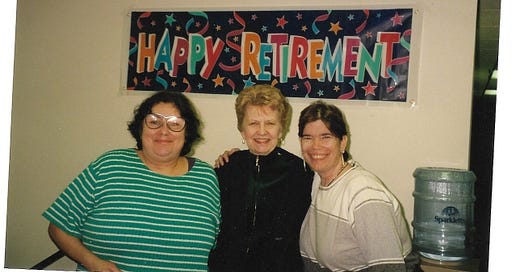



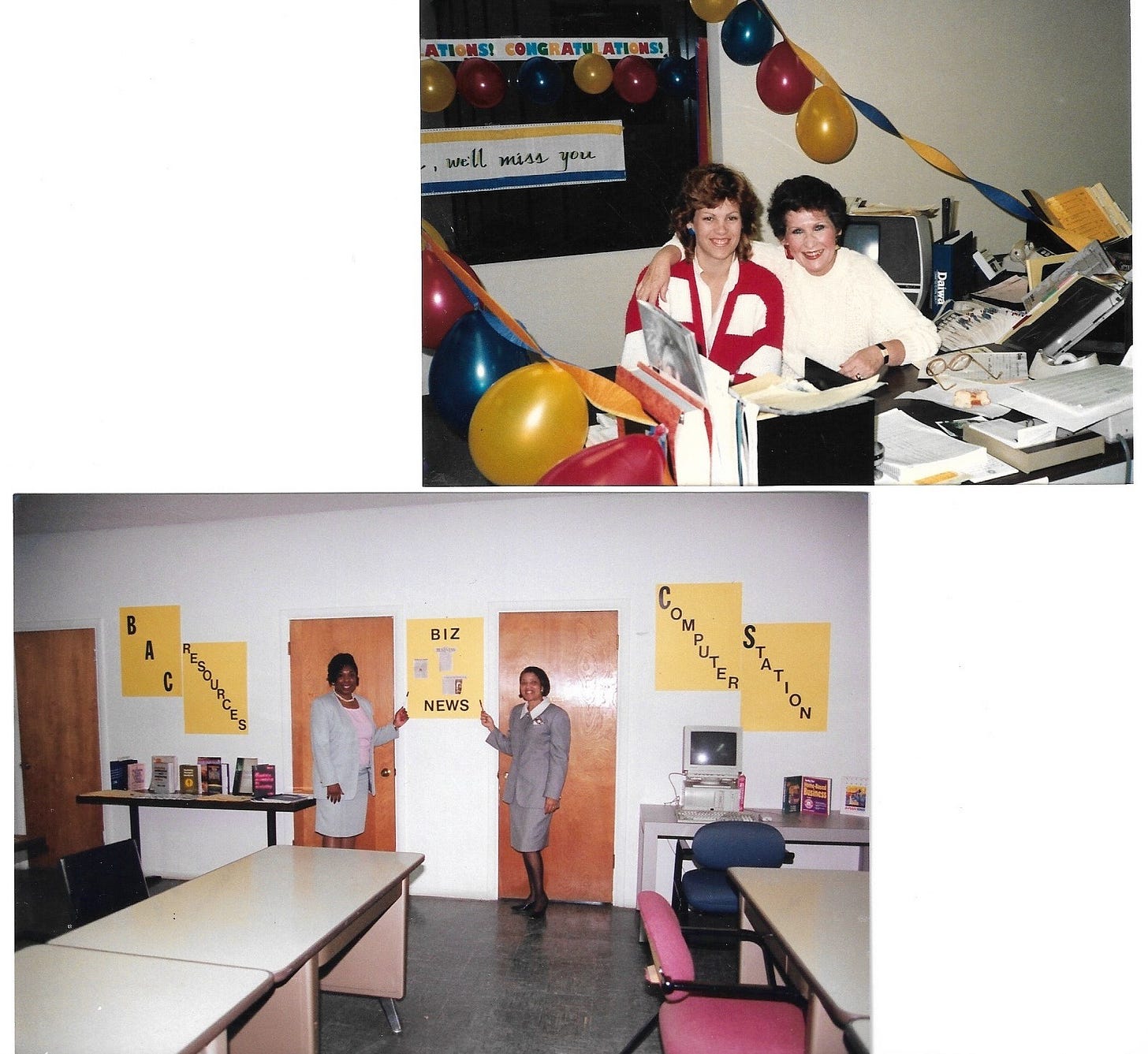
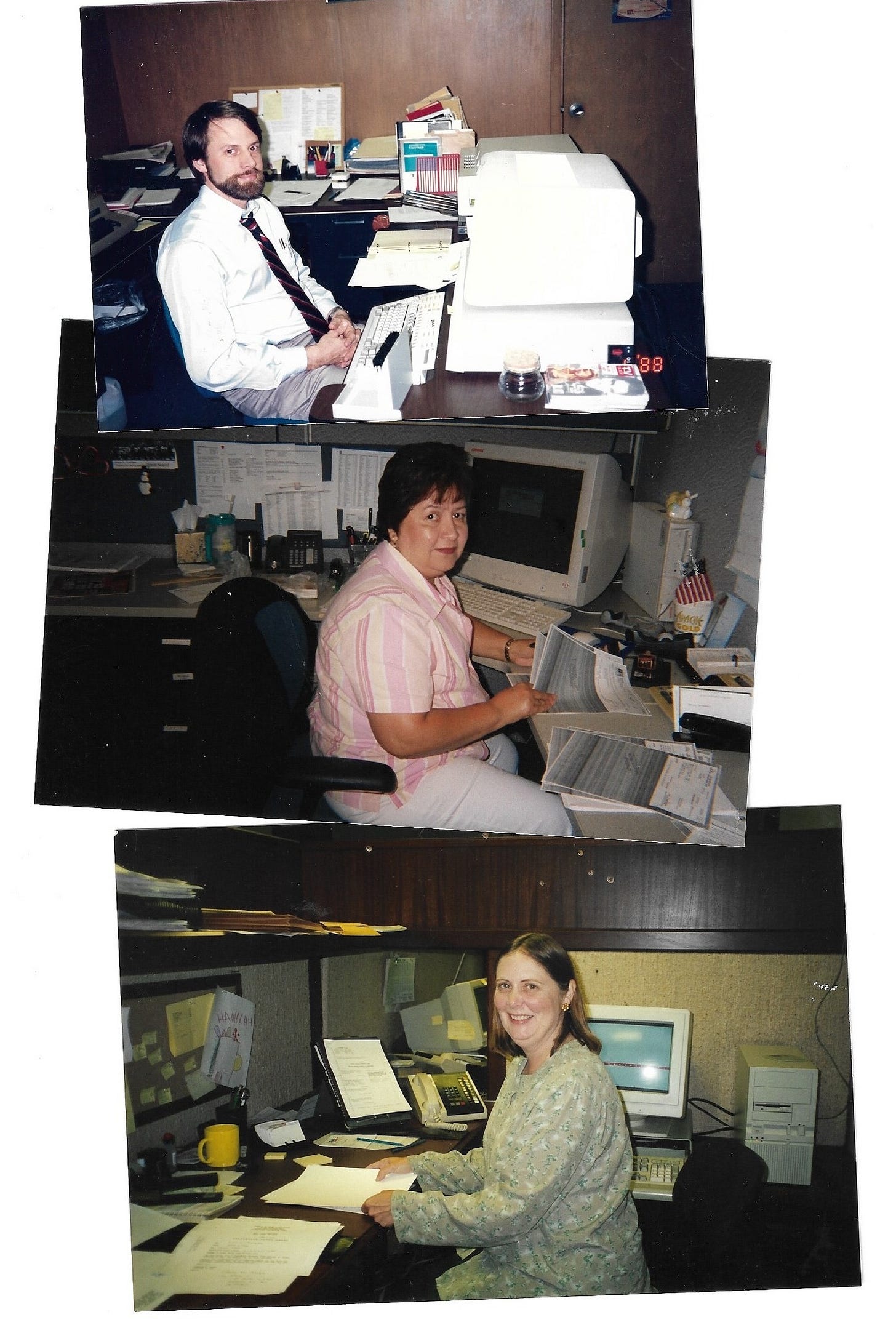
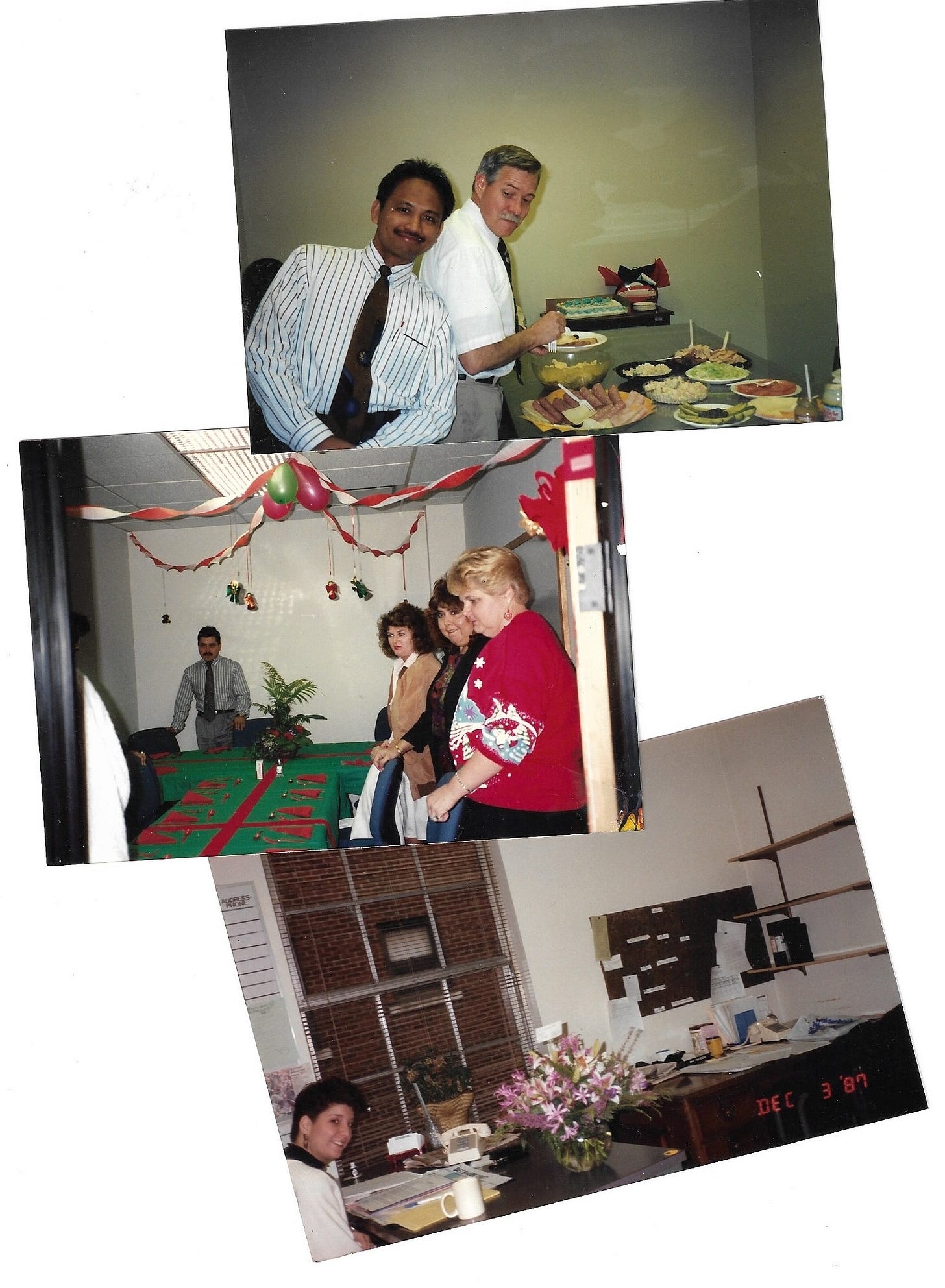
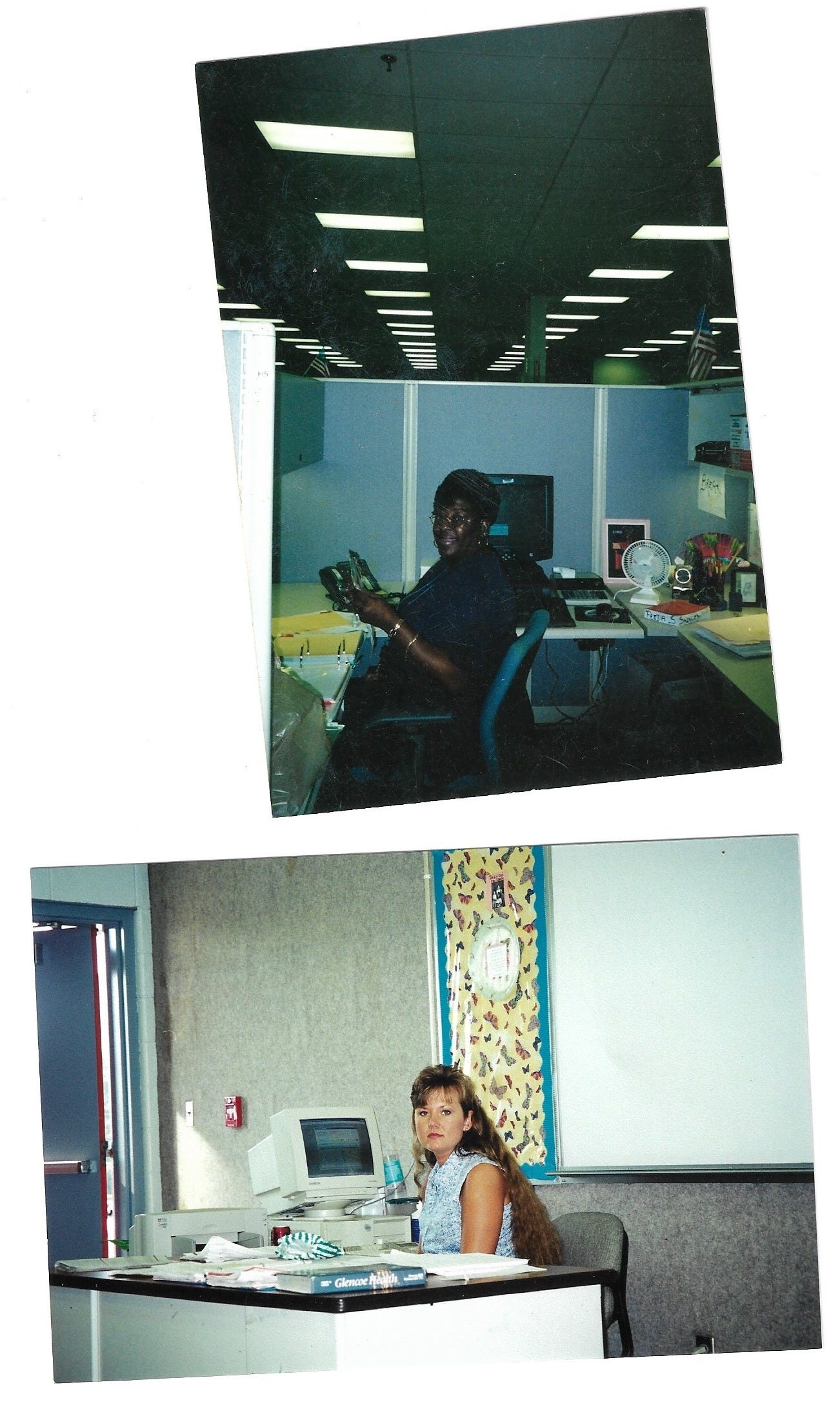
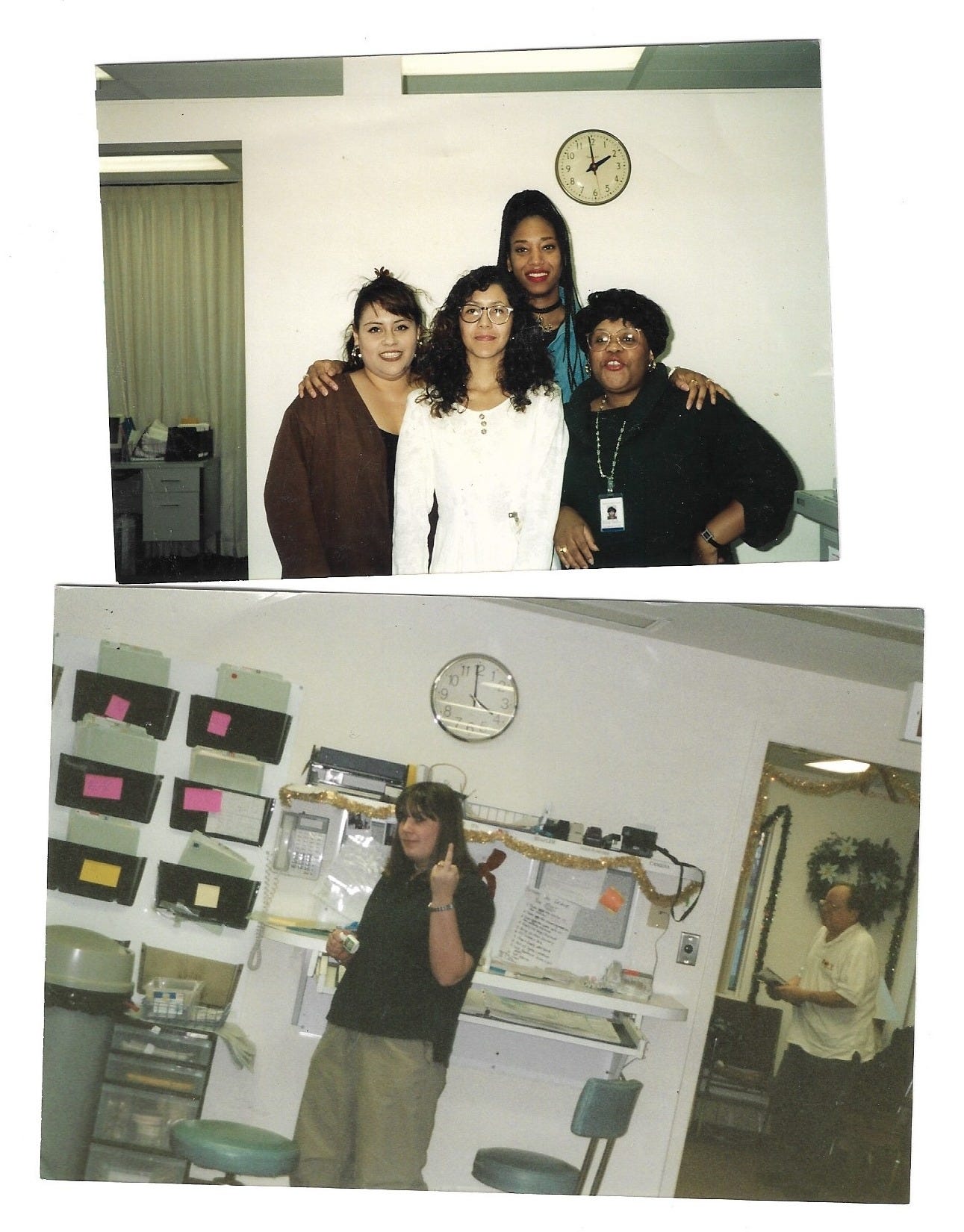
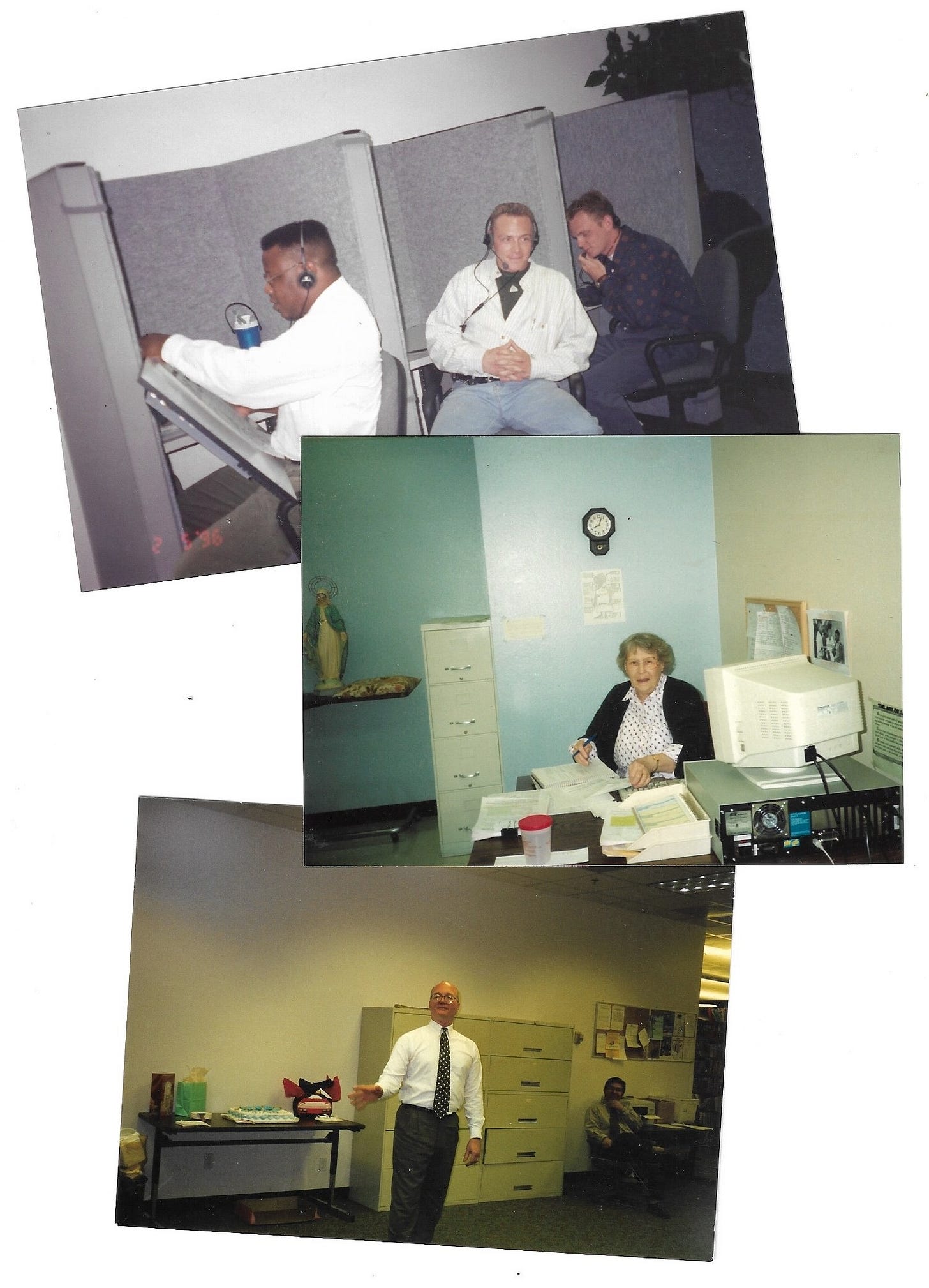
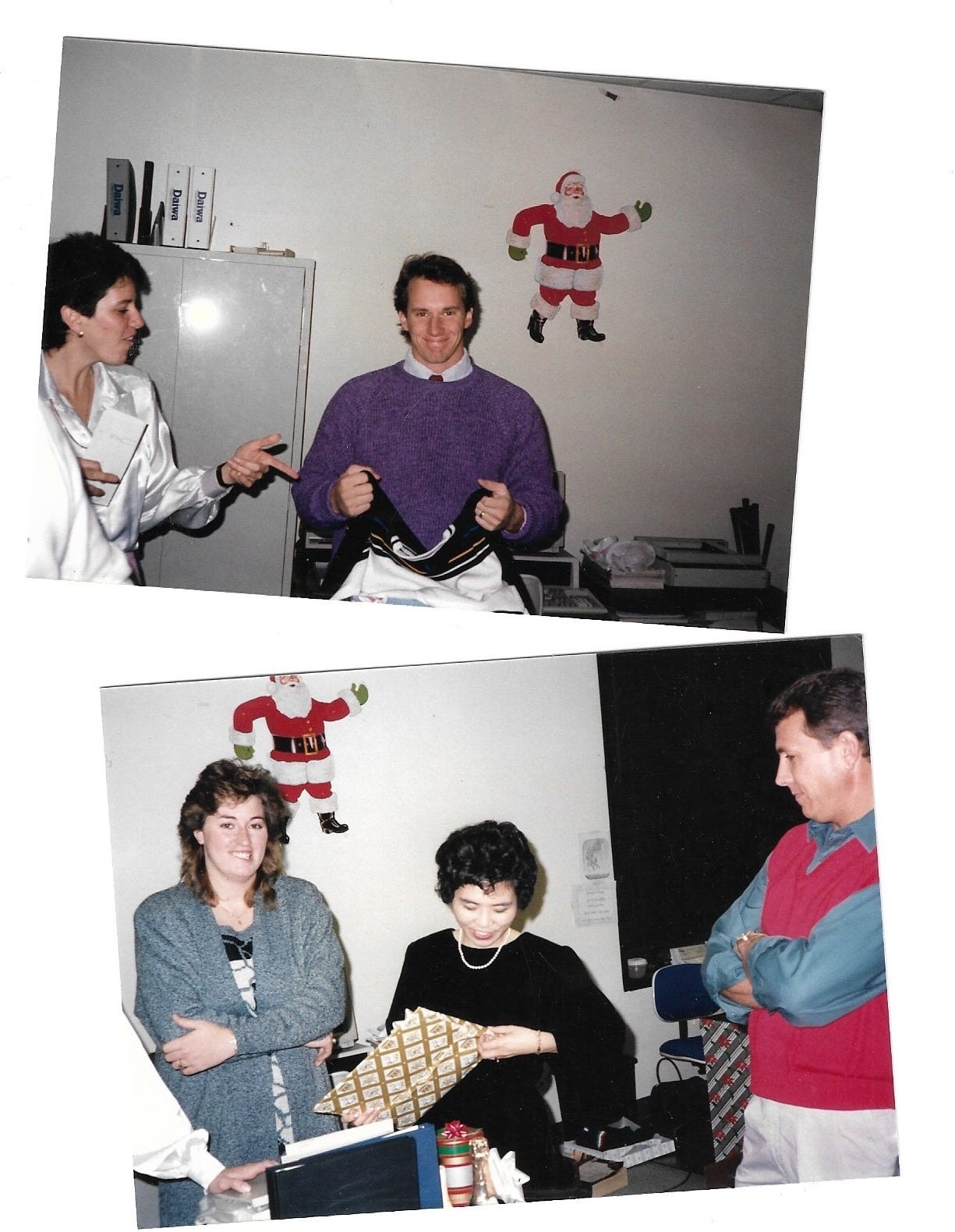

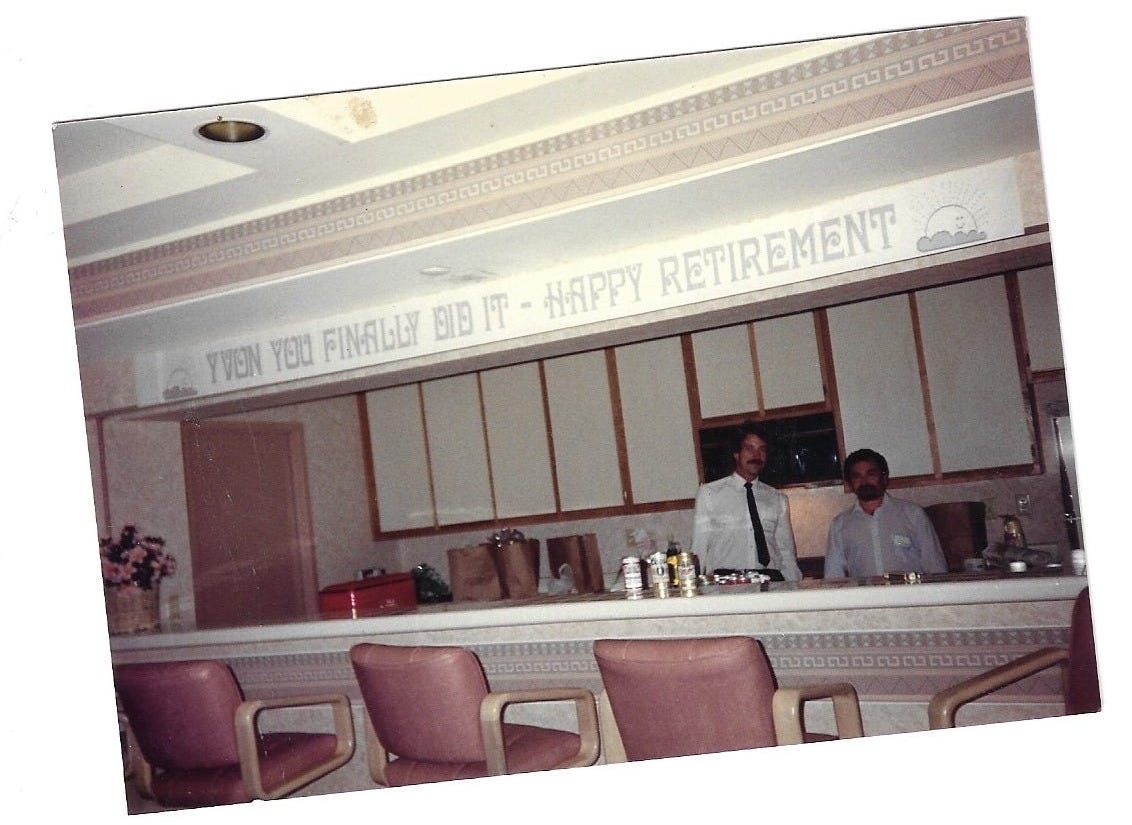
I was always a little too giggly for office life. My friend used to call me interoffice and say "I have peonies on my desk" and I always heard "panties" and I'd scream and we'd laugh and carry on and get dirty looks for "having too much fun."